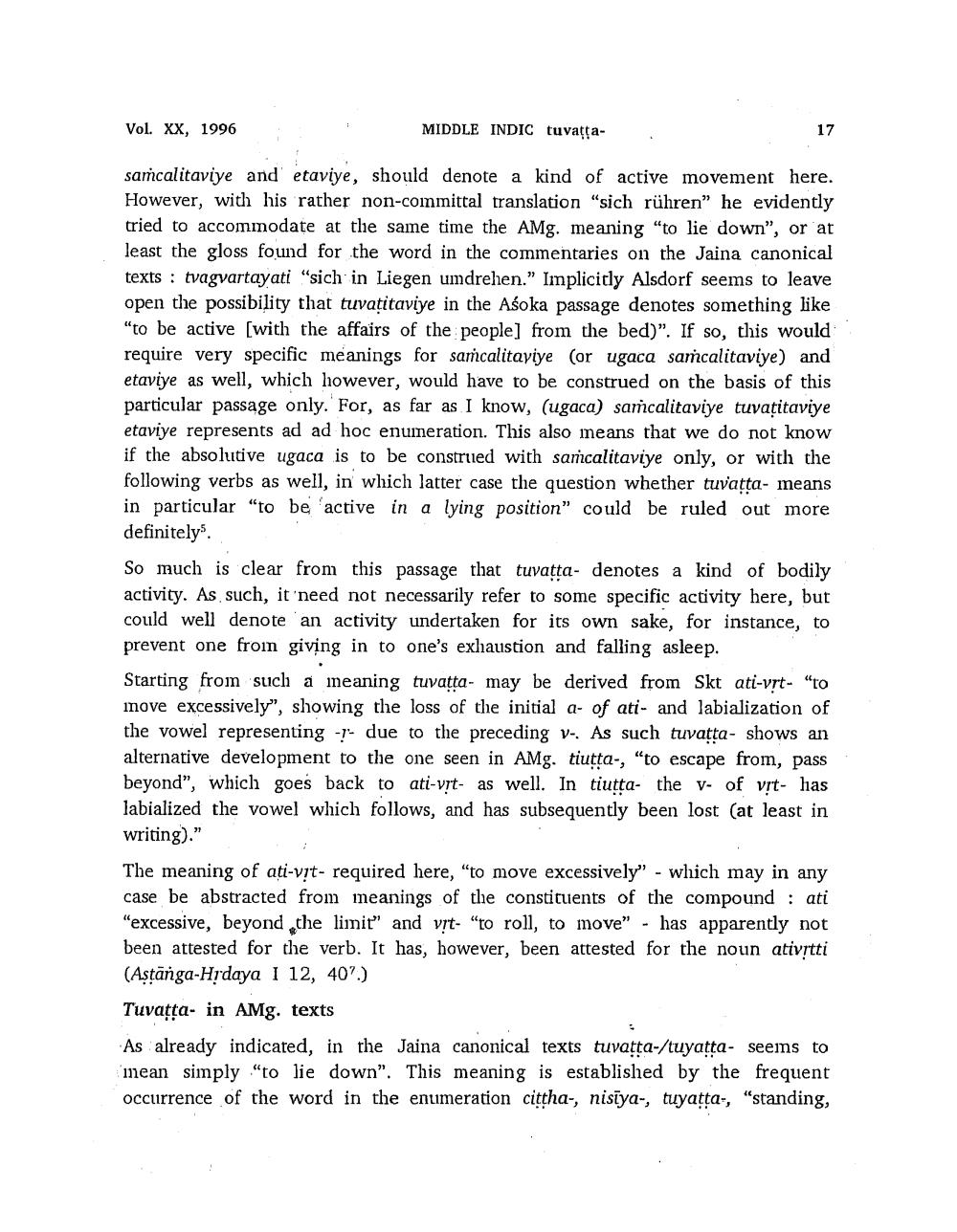________________
Vol. xx, 1996
MIDDLE INDIC tuvatta
17
samcalitaviye and etaviye, should denote a kind of active movement here. However, with his rather non-committal translation "sich rühren" he evidently tried to accommodate at the same time the AMg. meaning "to lie down", or at least the gloss found for the word in the commentaries on the Jaina canonical texts : tvagvartayati "sich in Liegen umdrehen." Implicitly Alsdorf seems to leave open the possibility that tuvațitaviye in the Aśoka passage denotes something like "to be active [with the affairs of the people) from the bed)”. If so, this would require very specific meanings for saṁcalitayiye (or ugaca saṁcalitaviye) and etaviye as well, which however, would have to be construed on the basis of this particular passage only. For, as far as I know, (ugaca) saṁcalitaviye tuvațitaviye etaviye represents ad ad hoc enumeration. This also means that we do not know if the absolutive ugaca is to be construed with sarcalitaviye only, or with the following verbs as well, in which latter case the question whether tuvatta- means in particular "to be active in a lying position" could be ruled out more definitely So much is clear from this passage that tuvatta- denotes a kind of bodily activity. As such, it need not necessarily refer to some specific activity here, but could well denote an activity undertaken for its own sake, for instance, to prevent one froin giving in to one's exhaustion and falling asleep. Starting from such a meaning tuvatta- may be derived from Skt ati-vrt- "to inove excessively”, showing the loss of the initial a- of ati- and labialization of the vowel representing -?" due to the preceding va. As such tuvatta- shows an alternative development to the one seen in AMg. tiutta-, "to escape from, pass beyond”, which goes back to ati-vrt- as well. In tiutta- the v- of vrt- has labialized the vowel which follows, and has subsequently been lost (at least in writing)." The meaning of ati-vit- required here, "to move excessively" - which may in any case be abstracted from meanings of the constituents of the compound : ati "excessive, beyond the limit" and vrt- "to roll, to move" - has apparently not been attested for the verb. It has, however, been attested for the noun ativịtti (Astānga-HỊdaya I 12, 407.) Tuvatta- in AMg. texts As already indicared, in the Jaina canonical texts tuvatta-/tuyatta - seems to mean simply "to lie down". This meaning is established by the frequent occurrence of the word in the enumeration cittha-, nisīya-, tuyatta-, “standing,




